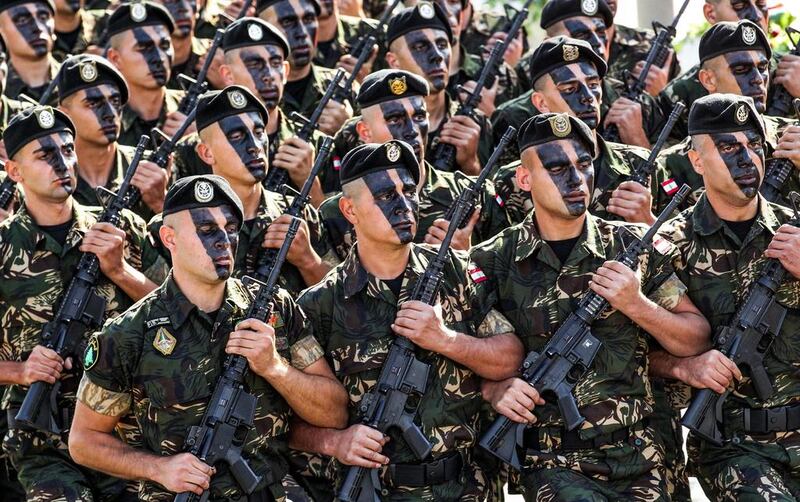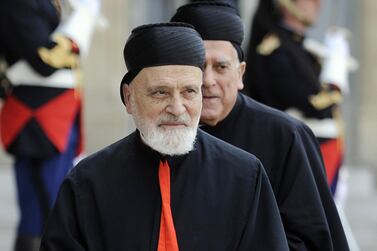International human rights groups have called for an independent investigation into the death of a Lebanese man reported to have died from torture while in police detention.
Hassan Dika, 44, was arrested in early November on drug-related offences, but died while in the custody of the Internal Security Forces on Saturday.
The UN High Commissioner for Human Rights, Michelle Bachelet, said that Dika had been “held incommunicado and allegedly subjected to heavy beating, including on his intimate parts, electric shocks and forced nudity”.
Ms Bachelet's statement also said that he had been forced to sign a confession.
Dika was taken to a hospital in early April after suffering partial paralysis of his left leg and severe pain in his back. The UN said he was unable to stand when he died.
Human Rights Watch, which joined the call for an investigation, said it had not been able to confirm the cause of his death.
Lebanese Minister of the Interior and Municipalities, Raya Al Hassan, whose ministry supervises the Internal Security Forces, said on Sunday that she had opened an investigation.
Ms Al Hassan expressed her regret over the accusations, the state-run National News Agency reported.
“We are fully committed to the implementation of international human rights treaties and to not violating human rights”, she said.
In late November, a lawsuit was filed with the public prosecutor’s office alleging that Dika had been arrested arbitrarily and tortured, but no investigation was launched, the UN said, without saying who lodged it.
The lawsuit was withdrawn in March, reportedly under pressure from the authorities.
Ms Bachelet called for an “independent, prompt and credible investigation into all aspects of his case to find out what went wrong and to ensure such situations no longer occur in Lebanon”.
The force denies that Dika died because of torture and says that pre-existing health conditions were the cause.
It said Dika was transferred to hospital in April because of back pain and that a forensic doctor did not notice any signs of violence on the body.
The force said that the family refused a post-mortem examination.
It accused Dika’s father, Toufic Dika, of asking an unidentified forensic doctor to fabricate false medical reports claiming that the body displayed signs of violence.
The doctor, who is in custody, had confessed to fabricating the documents, the force said.
But Mr Dika blamed security forces and the judiciary for his son’s death.
"My son is a victim of torture," he told AFP.
The acting Middle East director for Human Rights Watch, Lama Fakih, said: “While it is important for the ISF to conduct an internal investigation, they are also the party accused of wrongdoing in this case.
“An independent investigation should be conducted at the same time by the general prosecutor’s office to ensure there is adequate independence.
“We have documented cases in the past where authorities claim individuals died of natural causes in custody, but we found this to not be the case."
Sahar Mandour, a researcher at Amnesty International, called on the Lebanese state to show no tolerance towards cases of torture.
The country adopted an anti-torture law in September 2017 but rights groups have routinely documented credible reports of torture.
They say authorities have consistently failed to properly investigate allegations of ill-treatment by security services.
On March 7 this year, the government appointed five members to a national committee against torture. It was given the task of investigating complaints of human rights breaches.
But the Cabinet has not yet allocated a budget for the body.
The largely Druze Progressive Socialist Party issued a statement calling for all those involved to be held accountable for this “unprecedented scandal”.






